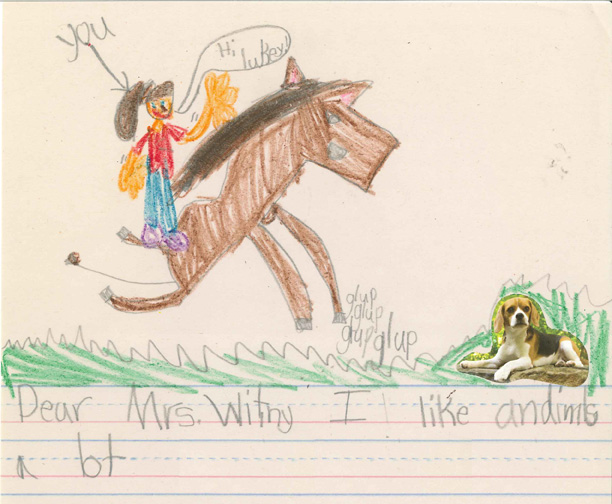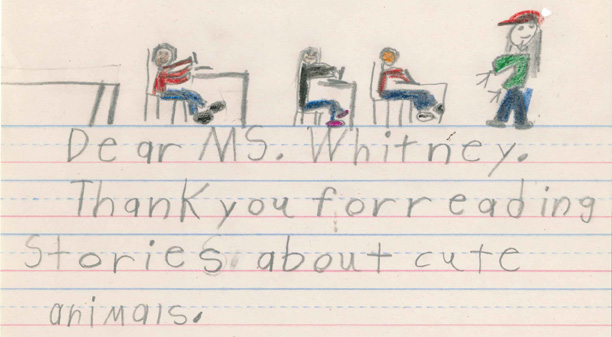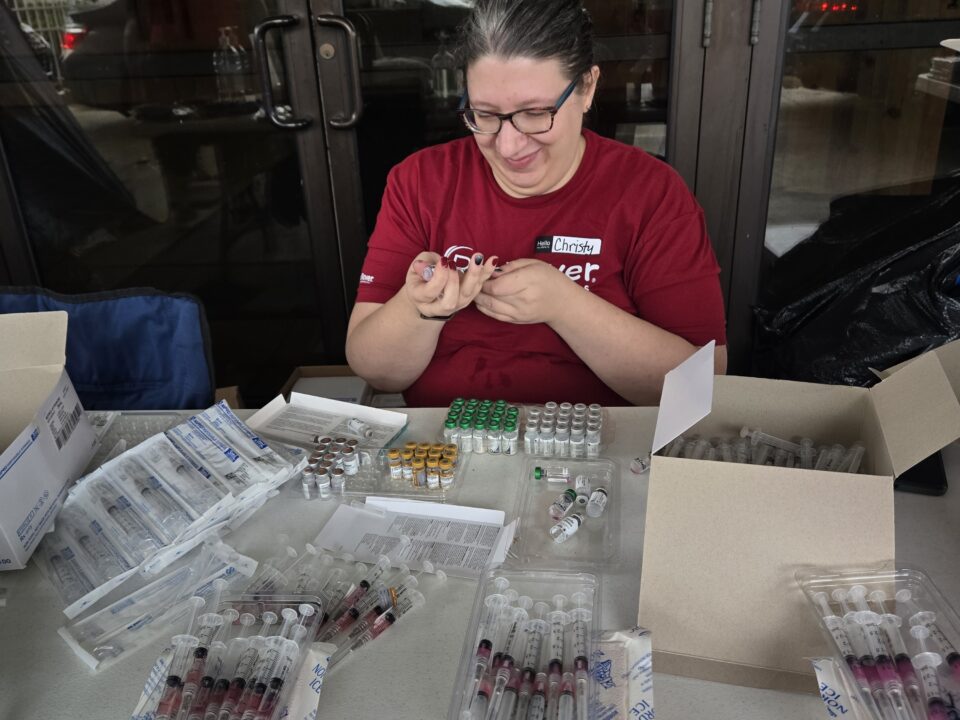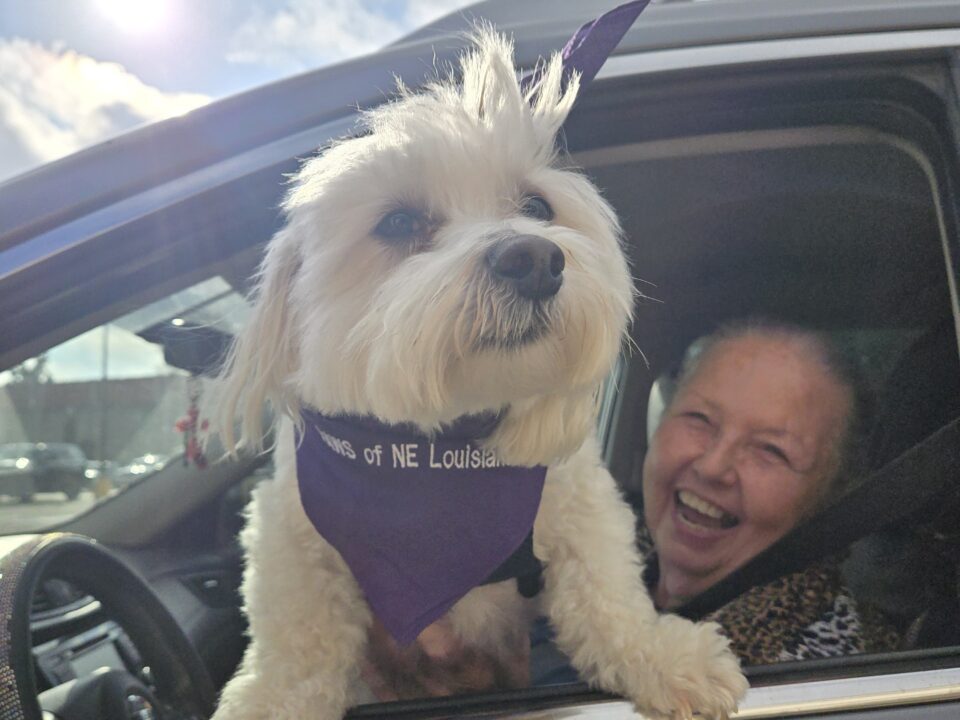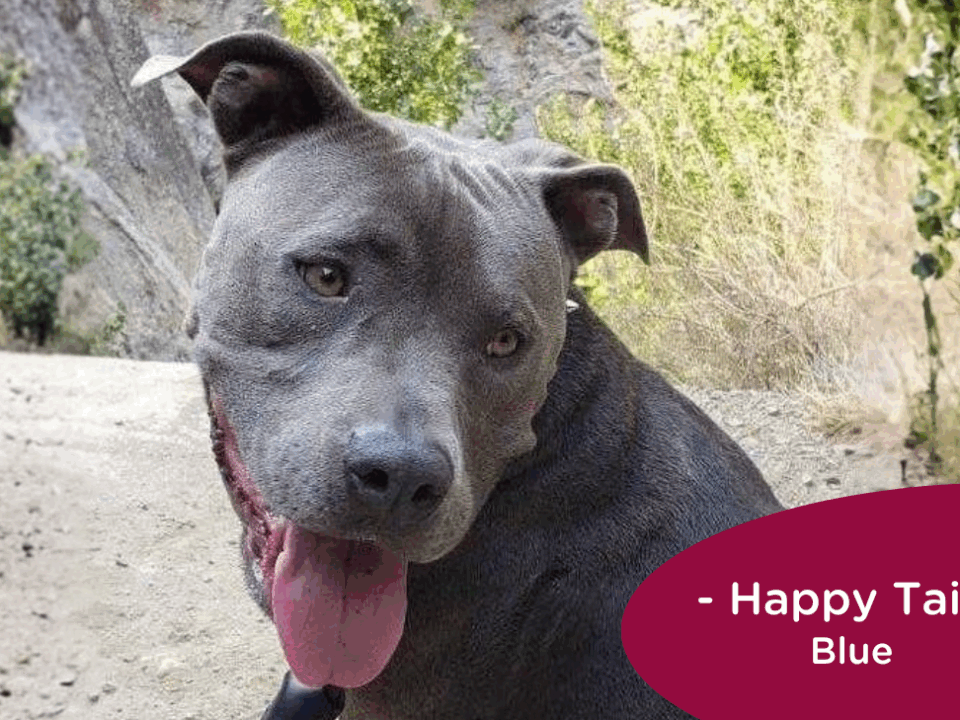"These are moments I live for"
November 15th, 2013
An interview with Whitney Best, RedRover Readers volunteer
By Nicole Forsyth, RedRover President and CEO
Whitney Best lives in Sacramento, California, and has volunteered with the RedRover Readers program since 2009. She visits classrooms and encourages children to think humanely about animals. She sat down with RedRover President and CEO Nicole Forsyth to talk about what makes the RedRover Readers program unique.
Nicole: What made you decide to volunteer for RedRover?
Whitney: I loved the idea of helping children relate to animals in a different way … to get to kids early and give them new ways to see things.
Nicole: In what ways do you think RedRover is different from other animal nonprofits?
Whitney: For one thing, I don’t know of anything that is similar to the RedRover Readers program. It is subtle in the sense that the kids don’t know that we are there to try and save animals – and they end up being the ones to push those ideas along, whether they know it or not.
Nicole: What kind of support do you feel RedRover gives you?
Whitney: Primarily knowing that RedRover is there behind me. Growing up in my family, I’m the odd duck. Mine is a family of hunters and hunting dogs, and then there’s me. Knowing that I’m not alone in all this, knowing that I have a whole group of people who are just like me, who will embrace me and let me do – encourage me to do – what I want to do is great. And meeting all the other volunteers has expanded my world, and now I know more people like me!
Nicole: Did you have any “ah-ha” moments when you were learning about the RedRover Readers program?
Whitney: Definitely. It wasn’t what I thought it was going to be, in that I thought you would just go read a book and enjoy the story and everyone would be happy. I realized it is much deeper than that and you can learn so much about a child and what they know just from asking them questions.
Some of my favorite questions to ask are about the book Mrs. Crump’s Cat, because the people in the book completely change. “Did you notice any difference?” and “Look at Mrs. Crump’s face here, and look at Mrs. Crump’s face there.” You can see the lights coming on in the kids’ eyes, and I did not anticipate that. I expected that kids would love the story, and I’d get to spend time with kids and maybe we’d all learn something, but who knew that I was going to see children’s minds open up and see them realize that animals can be friends. I was floored. This is where the support from RedRover is huge because I’m so emotional coming out of a reading – and who knew that’s what it would be! You just think you’re going to a school to do a good thing, but it was much more profound than I ever would have thought.
I remember being intimidated in the training workshop; I wanted to make sure I was asking the right questions, and at first you’re nervous, but then it sort of falls into place and gradually you find you can react off the children and ask nonjudgmentally, “How do you think that makes you feel?” and “Why would this person do this?” or “Why would Mrs. Crump not toss the cat back outside?” And they answer, “Because she wants a friend.” It’s so natural. It was very revealing to me.
Nicole: Can you tell me about a student you saw change or learn something about animals that really moved you?
Whitney: It was probably in my second year of doing this, one student raised her hand, and she was crying. She had recently seen her Dad throw a bag full of newborn kittens into a swimming pool because he didn’t want them. And she didn’t understand why her father would do that. She didn’t understand that it was okay for her to not like what her father did. So for her to hear a book about helping animals made her feel very conflicted, but she knew she was upset, and she never had permission before to be upset.
That was three years ago, and it still resonates with me. I can’t imagine what it would be like to be a child and witness that, knowing you can’t do anything about it. This is what makes me keep going, because she heard the story, she heard what I was saying, what her classmates were saying, and it impacted her.
Nicole: What other changes do you see in the classroom?
Whitney: When it comes to animals, just about all the students come to life. They get so excited just to see me coming; they love being asked what they think. And the teachers get really excited when they see the kids who are usually checked out participate, and tell me the whole story: “Well, Mrs. Crump loves the cat because she was lonely, but she didn’t know she was lonely. And the cat needed Mrs. Crump.” And then you see them realize, maybe Mrs. Crump needed the cat as much as the cat needed her. These are moments I live for, and then, of course, there’s the thank you letters that bring me to tears.
